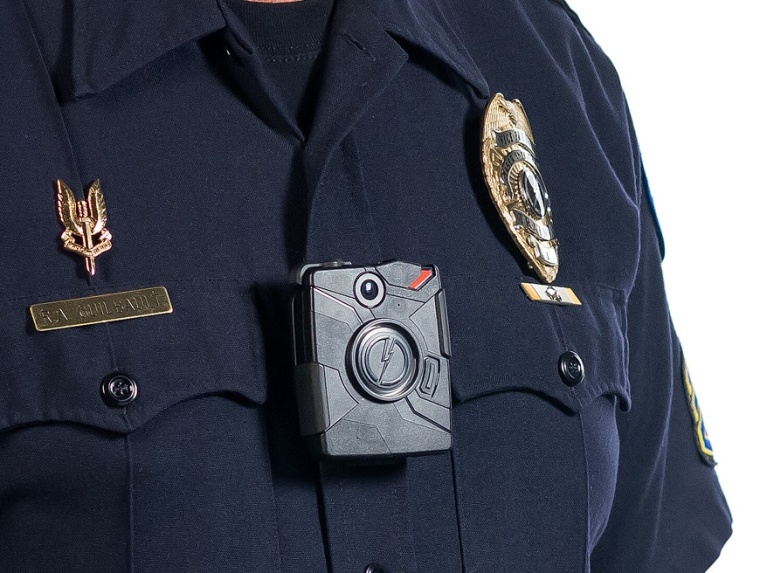The American Civil Liberties Union has weighed in on uniform-mounted police cameras in a lengthy blog post on its website. The take-away: this has the potential to be good for everyone — if we can make sure the system isn't abused.
"The challenge of on-officer cameras is the tension between their potential to invade privacy and their strong benefit in promoting police accountability," writes the organization.
That echoes the position of the New York Civil Liberty Union's director, Donna Lieberman, whom NBC News interviewed for a report on cop-cams in August. She said then that there's a lot of potential for good, but we need to tread lightly in how we implement such a wide-reaching system.
To that end, the ACLU lists several major points that would need to be addressed if cop-cams are to be deployed en masse:
- Recordings must not be at the discretion of the officer, but always on while they are on duty and only turned off in very specific circumstances, such as on private property at the request of the owner.
- Strict limits on how long recordings are retained, for instance 30 days for any recording not flagged as containing critical data about an arrest, complaint, ongoing case, and so on. Another limit (a few years) on video of arrests or video otherwise considered important.
- Recordings not involved with any incident or report should pass straight through the system without ever being viewed, to reduce the chance that the system will be used as a broad, active surveillance organ.
- Anyone with a significant presence in a recording should be alerted and allowed to view, copy, or flag said recording.
- Studies must be done evaluating the effect of always-on cameras on police work, crime rates, witness testimony, and other areas.
The cameras, systems, and laws involved are changing rapidly, so this sector will certainly be in flux for the next few years. But controls like those proposed by the ACLU (and, in fact, by police, who are also concerned with the repercussions of constant surveillance) could go a long way towards making such devices effective without compromising privacy.
Read the full blog post at the ACLU website for more details and some useful links.
Devin Coldewey is a contributing writer for NBC News Digital. His personal website is coldewey.cc.
